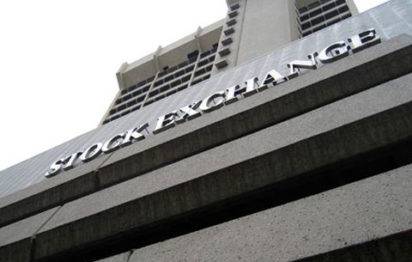Investors in the Nigerian stock market experienced a substantial setback, with approximately N1.5 trillion lost in their investments following a significant adjustment in the Central Bank of Nigeria’s (CBN) Monetary Policy Rate (MPR) during the recent Monetary Policy Committee (MPC) meeting. This move, unprecedented in its magnitude, saw the MPR surge by 400 basis points to an all-time high of 22.75 percent from its previous standing at 18.75 percent. The repercussions of this decision were swift and severe, manifesting in various key indicators of the market’s health.
One of the immediate consequences was reflected in the Nigerian Exchange Limited’s (NGX) market capitalization, which serves as a barometer for the total value of investments in the exchange. By the close of Wednesday’s trading session, the market capitalization had plummeted to N54.317 trillion, a stark decline from its Monday figure of N55.810 trillion. This dramatic drop underscored the shockwaves rippling through the investor community in response to the CBN’s policy adjustment.
The announcement of the new MPR by CBN Governor Yemi Cardoso on Tuesday catalyzed a substantial loss of N773 billion, setting the stage for further distress on Wednesday as the market recorded an additional decline of N720 billion. The consecutive downturn in market performance was also evident in the NGX All Share Index (ASI), which experienced a 2.7 percent decrease, closing at 99,266.02 points, down from its Monday level of 101,995.53 points (investors).
Market analysis shed light on the underlying factors contributing to this downward spiral. Trade turnover, for instance, settled at a lower level compared to the preceding session, with the value of transactions experiencing a notable decline of 4.8 percent. A total of 396.23 million shares valued at N5.83 billion were exchanged in 10,549 deals, indicating a cautious approach among market participants amidst the prevailing uncertainty.
Analysts pointed to several drivers behind the bearish trend, including selloffs in highly priced stocks and profit-taking in blue-chip companies. These activities exerted downward pressure on the benchmark NGX ASI, further exacerbating the market’s downturn. Notably, the immediate response to the 4% increase in MPR underscored the market’s sensitivity to monetary policy decisions and their broader economic implications.
In assessing the broader economic landscape, analysts highlighted the context surrounding the CBN’s policy shift. The signals from the new CBN Governor since November 2023, coupled with the prolonged absence of a policy meeting and the alarming rise in inflation rates nearing a 28-year high at 29.9%, underscored the gravity of the economic challenges facing Nigeria. Additionally, the steep depreciation of the Naira against the dollar, reaching nearly 70% in 2024, further compounded the market’s apprehensions (investors).
Conclusion

Investors
The profound impact of the CBN’s policy adjustment reverberated throughout the Nigerian stock market, with investors grappling with significant losses and heightened uncertainty. Against the backdrop of broader economic challenges, including soaring inflation and currency depreciation, the market’s response underscored the imperative for policymakers to navigate these turbulent waters with vigilance and foresight.
Source: guardian.ng










